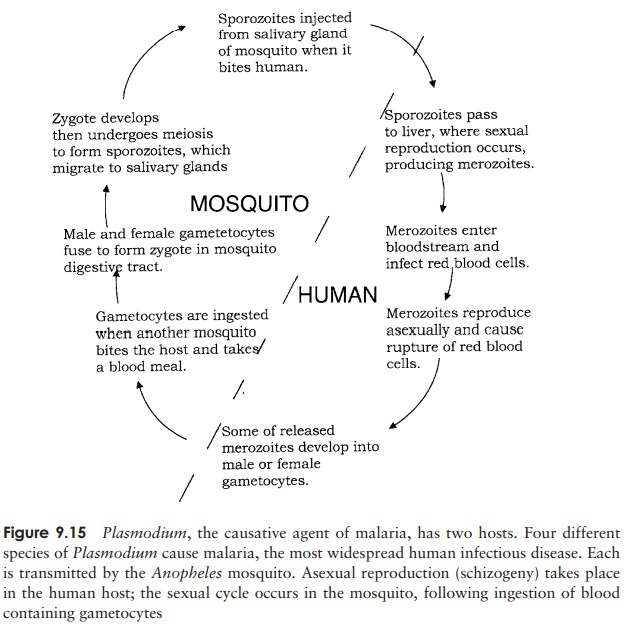Chapter: Essential Microbiology: Protista
Sporozoans (Apicomplexa) - Protozoa
The sporozoans
(Apicomplexa)
Members of this group are all parasitic, infecting a
range of vertebrates and invertebrates. They have complex life cycles
involving both haploid and diploid phases and infecting more than one host.
Probably the best known is Plasmodium,
the causative agent of malaria, which spends part of its life in a species of
mosquito (Figure 9.15). Sporozoans are characterised by a spore-like stage
called a sporozoite, which is
involved

in the transmission of the parasite to a new host.
The tip of the sporozoite contains a complex of structures that assist in the
penetration of the host’s tissues. Unlike the protozoans discussed above,
sporozoans are generally non-motile, and absorb soluble nutrients across the
cell surface rather than ingesting particulate matter.
Related Topics